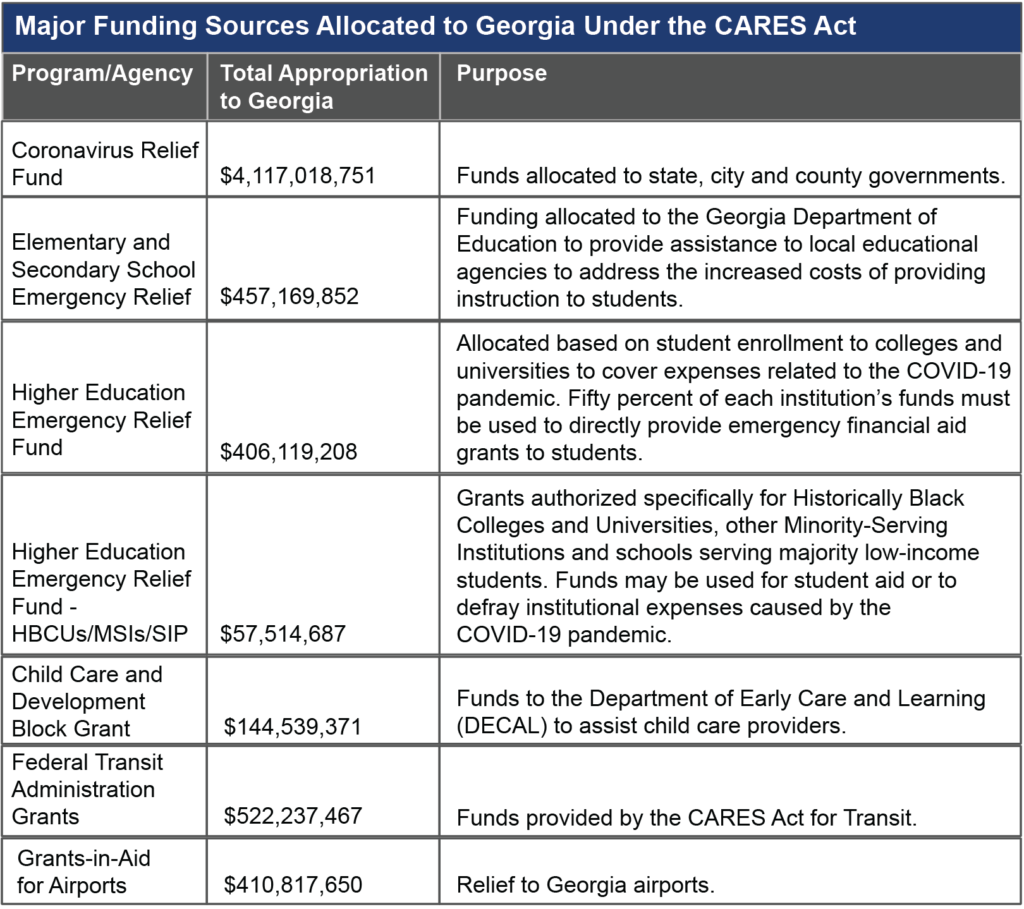As of August 1, 2020, the federal fiscal response to the COVID-19 pandemic includes two major legislative packages: the Families First Coronavirus Response Act (FFCRA) and the Coronavirus Aid, Relief, and Economic Security Act (CARES).
FFCRA funded free COVID-19 testing, enhanced unemployment insurance and suspended some burdensome requirements for recipients of the Supplemental Nutrition Assistance Program (SNAP) and the Special Supplemental Nutrition Program for Women, Infants and Children (WIC), but the centerpiece of the legislation was the $36 billion in additional Medicaid funding to enhance each state’s matching Federal Medical Assistance Percentages (FMAP) rate by 6.2 percentage points. Through this enhancement, the state received about $700 million from March through July, with approximately $154 million used to cover Medicaid costs in the state’s FY 2021 budget.
The $2.2 trillion CARES Act provided the largest share of federal assistance to the state. The legislation provided funding to help state and local governments cover the direct costs of the COVID-19 response through the Coronavirus Relief Fund, along with funding for education, child care, transportation and more. For the most part, these funds provided a temporary stopgap to help cover a few months of costs directly related to the pandemic.






1 thought on “Federal Funding Given to Georgia in Response to the COVID-19 Pandemic”
Is anyone doing an investigation into where all the money actually went and how it was allocated? I am a single mother (no child support) who lost her job due to the coronavirus pandemic. I applied for help via many many of the “programs” that were supposedly directing the Cares Act aid to people who needed it. I had and abysmal experience and did not get the help I needed and requested. I have been waiting for 2 years (TWO YEARS) for help from GA Rental Assistance. My applications and requests for help seemed to go into an abyss. I would like to know where the money went.